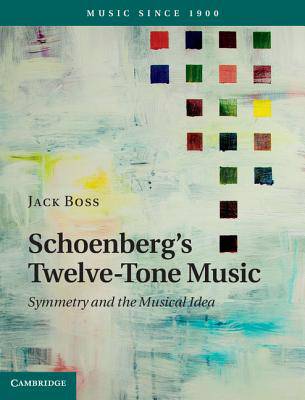
- Afhalen na 1 uur in een winkel met voorraad
- Gratis thuislevering in België vanaf € 30
- Ruim aanbod met 7 miljoen producten
- Afhalen na 1 uur in een winkel met voorraad
- Gratis thuislevering in België vanaf € 30
- Ruim aanbod met 7 miljoen producten
Zoeken
€ 223,45
+ 446 punten
Uitvoering
Omschrijving
Jack Boss takes a unique approach to analyzing Arnold Schoenberg's twelve-tone music, adapting the composer's notion of a 'musical idea' - problem, elaboration, solution - as a framework and focusing on the large-scale coherence of the whole piece. The book begins by defining 'musical idea' as a large, overarching process involving conflict between musical elements or situations, elaboration of that conflict, and resolution, and examines how such conflicts often involve symmetrical pitch and interval shapes that are obscured in some way. Containing close analytical readings of a large number of Schoenberg's key twelve-tone works, including Moses und Aron, the Suite for Piano Op. 25, the Fourth Quartet, and the String Trio, the study provides the reader with a clearer understanding of this still-controversial, challenging, but vitally important modernist composer.
Specificaties
Betrokkenen
- Auteur(s):
- Uitgeverij:
Inhoud
- Aantal bladzijden:
- 463
- Taal:
- Engels
- Reeks:
Eigenschappen
- Productcode (EAN):
- 9781107046863
- Verschijningsdatum:
- 17/11/2014
- Uitvoering:
- Hardcover
- Formaat:
- Genaaid
- Afmetingen:
- 185 mm x 246 mm
- Gewicht:
- 1247 g

Alleen bij Standaard Boekhandel
+ 446 punten op je klantenkaart van Standaard Boekhandel
Beoordelingen
We publiceren alleen reviews die voldoen aan de voorwaarden voor reviews. Bekijk onze voorwaarden voor reviews.











